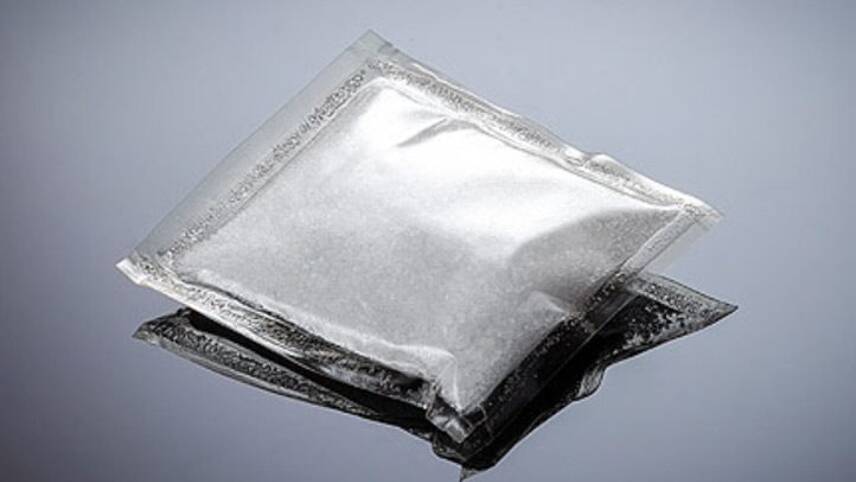Register for free and continue reading
Join our growing army of changemakers and get unlimited access to our premium content

Pictured: One of Xampla's prototype sachets
Seabright worked at Unilever for five years, from 2014, under then-chief executive Paul Polman. He left in 2019 and, along with Polman and Valeria Keller, co-founded IMAGINE – an organisation helping businesses to embed sustainability and make tangible contributions to tackling the world’s biggest environmental and social issues.
Prior to joining Unilever, Seabright was the Coca-Cola Company’s vice president for environment and water resources for more than a decade. He joined the private sector in 2000 after directing the White House Taskforce on Climate Change under the Clinton administration.
Now, he has announced that he will be chairing Xampla. The organisation is a spin-out from the University of Cambridge and has developed a string of biodegradable alternatives to single-use plastic using plant protein including peas. It claims the materials break down completely, causing no harm to the environment, and that they are low-impact to produce.
Xampla expects to bring its materials to the UK’s mass-market in 2021 and hopes corporates will use them to replace items such as bags, sachets, films and microplastic beads. The business has been certified as a B-Corp despite not having sold any products yet.
It said in a statement that its ten staff are pleased that Seabright will be bringing “a raft of environmental and commercial expertise” to the table, enabling the company to design packaging which meets the needs of large consumer goods companies.
Seabright, meanwhile, called Xampla “the most exciting innovation [he has] worked on”.
“We’ve known we’ve had a plastic crisis for a long time, but the biggest problem with plastic is also its biggest strength,” he explained. “Its durability is great when you are protecting your product and a nightmare afterwards. The great conundrum has been to find a product that is cheap and durable without lasting forever on our planet.”
Plastics action
While the so-called ‘war on plastics’ movement resulting from Blue Planet 2 sparked a string of commitments from corporates, WWF research last year proved that the global plastics economy is still growing – and is far from circular or low-carbon. Its analysis revealed that a further 104 million tonnes of plastic will “leak” into ecosystems by 2030 without a step-change in approach and that the overall carbon intensity of plastic will increase by 50% within the same timeframe.
Many businesses see plant-based or bio-based alternatives as part of the solution, alongside better recycling infrastructure, designing for recyclability and reusability, and simply going packaging-free where possible. These alternatives have been piloted by the likes of Just Eat, Lucozade Ribena Suntory and Hellmann’s.
But such materials are not, in and of themselves, a silver bullet. Producers of plant-based and bio-based materials must be mindful of their recyclability; the conditions they require to break down; whether they are safe for housing food; and how much water and land is required to produce them.
Sarah George


Please login or Register to leave a comment.